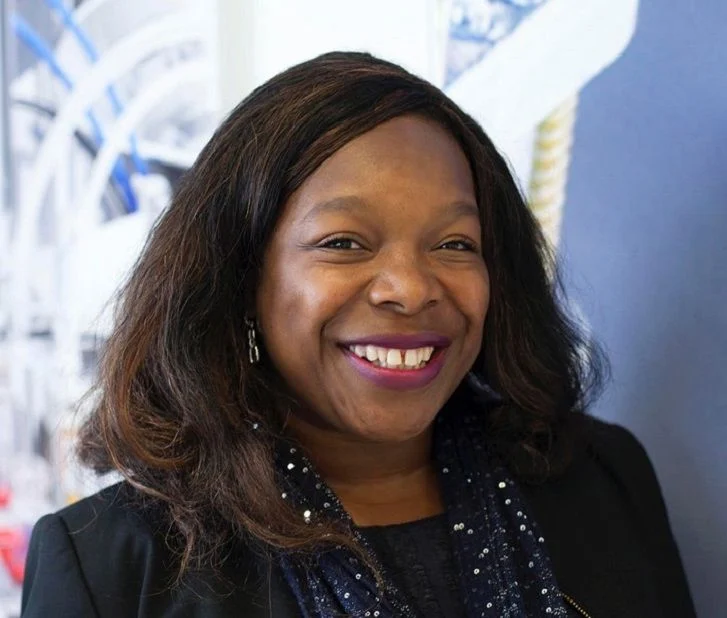- 新闻
The engineering sector has a long way to go in terms of gender parity. For example, women make up just 16.5 per cent of engineers in the UK and only 14 per cent in the US. Women face unique barriers that block their entry and progression in the engineering field, such as discrimination, a lack of role models and a company culture that doesn’t accommodate other life commitments and events.
Nine years ago, the Women’s Engineering Society (WES) set up International Women in Engineering Day (INWED) — a day dedicated to celebrating women in engineering and encouraging more into the field. As a global engineering company, Watson-Marlow Fluid Technology Solutions recognises its responsibility in improving the engineering sector for women.
A renewed commitment to inclusion
Earlier this year, Watson-Marlow launched a renewed commitment to inclusion called ‘Everyone is Included’ as part of their parent company, Spirax-Sarco Engineering plc. The commitment contains ten pledges — one of which is to become a more gender-balanced employer. In line with this, Watson-Marlow has enhanced its work culture to ensure that women can continue to balance work and external life commitments and events in a healthy way.
For instance, the company has introduced a minimum of 16 weeks paid non gender specific parental leave for colleagues who are becoming a parent in any way — including adoption and surrogacy. When colleagues then return to work, they are entitled to work a 30-hour week at full pay for their first six months. Watson-Marlow will also provide leave for appointments such as ante-natal care and fertility treatment, as well as offering unexpected parental leave for emergencies.
In the event of pregnancy loss, Watson-Marlow will give a colleague up to ten days of paid leave, as well as paid leave to attend associated appointments. In addition to this, Watson-Marlow’s new inclusion commitments include support for colleagues going through the menopause by offering sickness leave, environment adjustments and flexible working.
As part of the new commitments, Watson-Marlow endorses the United Nation’s (UN) Women’s Empowerment Principles. The principles provide corporate guideposts for actions that advance and empower women in the workplace.
At the end of 2021, 40 per cent of Watson-Marlow’s board was female, and its graduate scheme consistently hits its 50:50 gender balance target. While Watson-Marlow recognises its progress, it has committed to setting more goals to improve gender balance even further.
Empowering women in the workplace
In line with this years’ INWED and the company’s renewed commitment to inclusion, Watson-Marlow shines a light on some of its inspiring women in the engineering company.

Rebecca Rigden
Rebecca Rigden joined Watson-Marlow as a Biopharmaceutical Sales Engineer in 2017. She is responsible for establishing and maintaining Watson-Marlow’s relationships with customers and interpreting customers’ requirements to provide them with optimised solutions. Rebecca holds a BSc in Biotechnology from Rochester Institute of Technology (RIT) and an MBA from Southern New Hampshire University.
“I’ve faced a number of challenges being a female sales engineer in a male-centric field. Double standards can be found within the industry, where men who are ‘good’ at their job receive praise, but women must be ‘excellent’ to receive the same. It’s important that engineers are held to the same benchmark regardless of their gender to ensure everyone feels valued and included.
“Throughout my career, I’ve seen that women can get left behind because they can’t simultaneously work and raise children without the necessary assistance from their employer. I believe more companies are now coming to realise that it’s better to support their highly trained employees and retain them, rather than let them leave and rehire. I hope this trend continues to grow. The option for working from home and flexible working solves many issues for female employees who are struggling to juggle work and home life.
“Being at Watson-Marlow is like a breath of fresh air. Work hours and location are flexible to every colleague’s unique needs, helping us all to strike a healthy work-life balance. Our company culture makes everyone feel comfortable and included, which allows each individual to excel in their chosen field.
“My advice to women who want to pursue a career in engineering is to try hard and go for it. There’s a network of women throughout the industry who all want you to succeed and will support you along the way.”

Sade Mokuolu
Sade is Watson-Marlow’s Strategy Implementation Lead and is responsible for facilitating and coordinating the implementation of Watson-Marlow’s strategy and ensuring effective communication and engagement throughout the organisation. Prior to her current role, Sade joined Watson-Marlow in 2016 as Global Regulatory and Validation Services Manager, Sade holds a BSc in Chemistry from Sussex University and a PhD in Organometallic Chemistry from the University of Nottingham.
“As a black woman from a low socioeconomic background, I have faced a number of challenges during my career. I think one main way I have overcome them is by being determined and not being afraid to move forward even if I don’t know what the next step is.
“Inclusivity is important because it fosters team spirit and allows people space to be themselves and bring their best ideas. There are a number of studies that highlight that companies with a diverse workforce tend to perform financially better than those without. So not only is there an increase in employee satisfaction and engagement as a result of being more diverse and inclusive, but it is also beneficial to the bottom line.
“Watson-Marlow’s inclusive culture makes sure everyone knows they are a valued part of the business. I’m very happy to be part of a global team that celebrates diversity and allows every member to express their unique thoughts and opinions. I am inspired everyday by colleagues around me.
“In terms of famous people, Oprah Winfrey, Maya Angelou and Marie Curie are definitely inspirational figures to me. Mostly recently, I have been inspired by the words of the New Zealand prime minister Jacinda Ardern, ‘Political leaders can be both empathetic and strong.’ That really resonates with me.”
